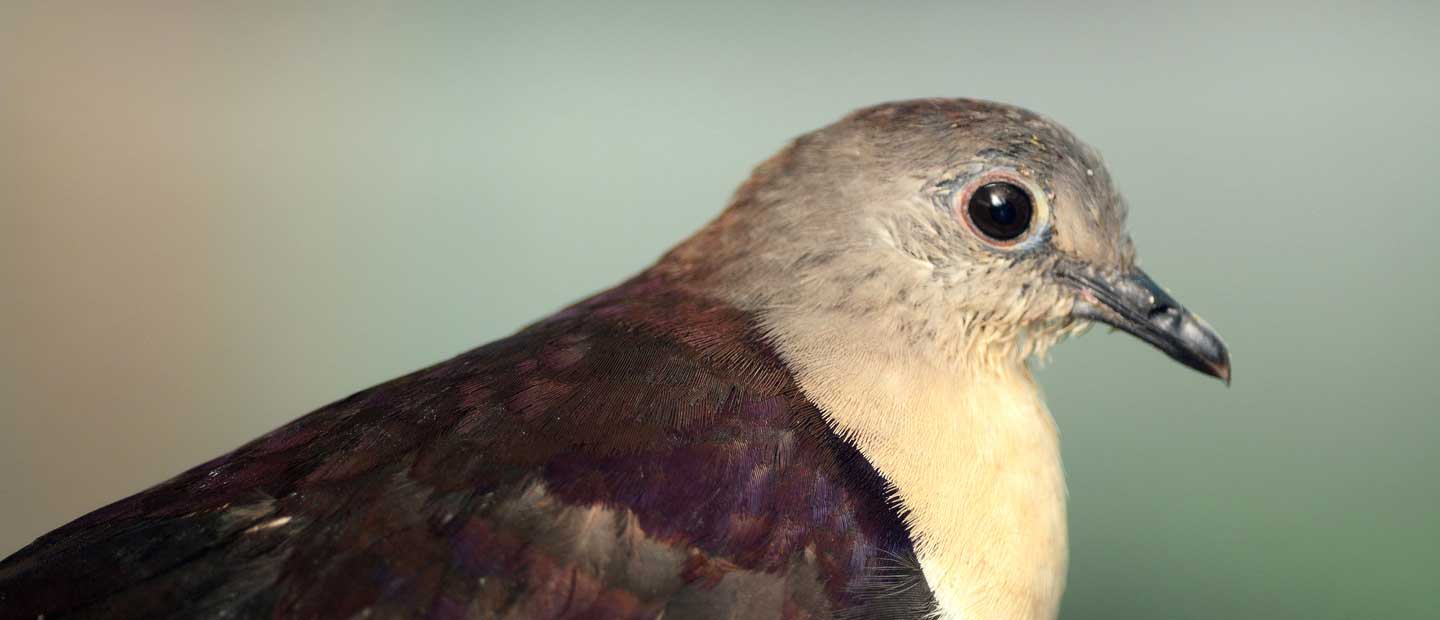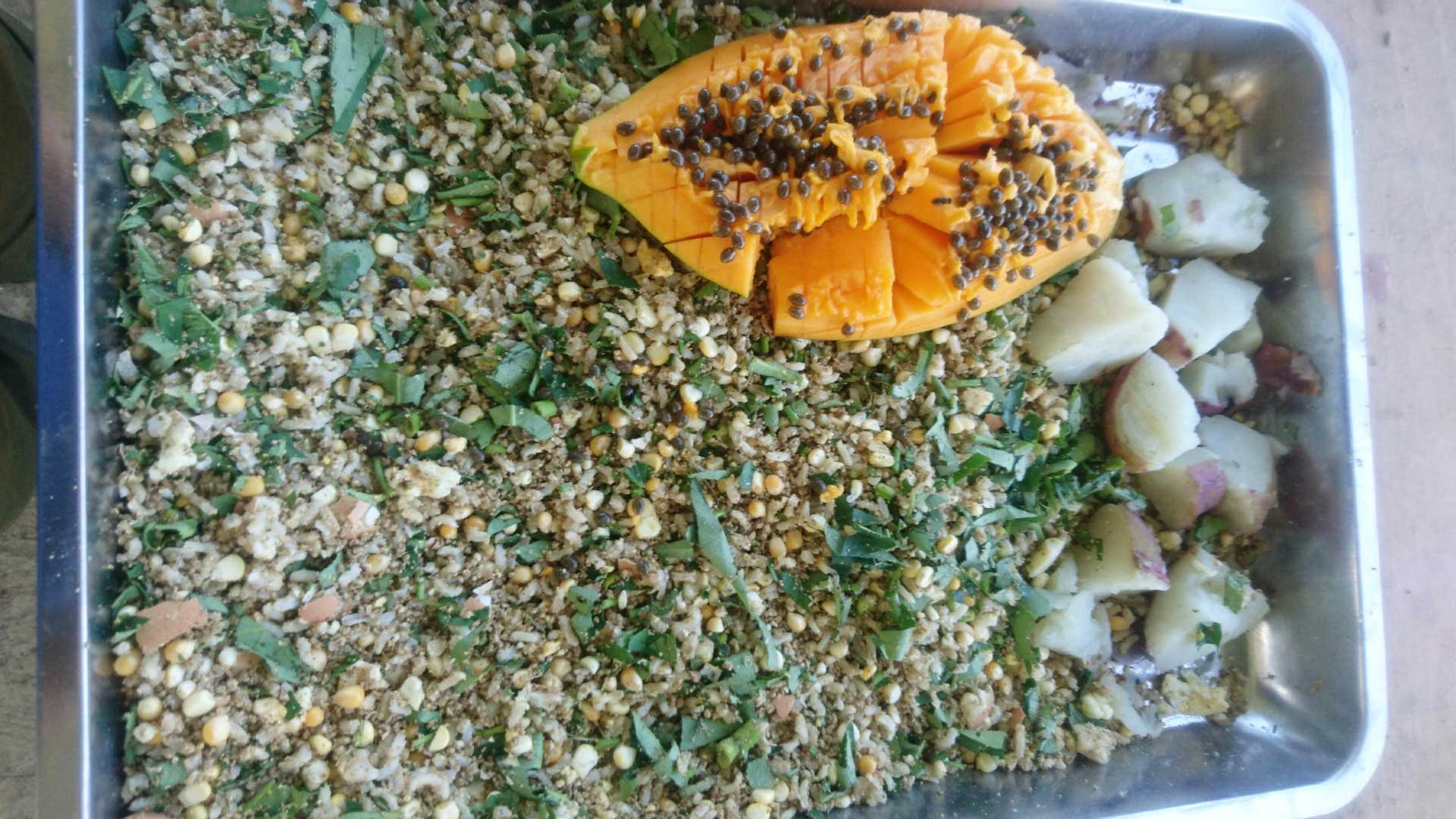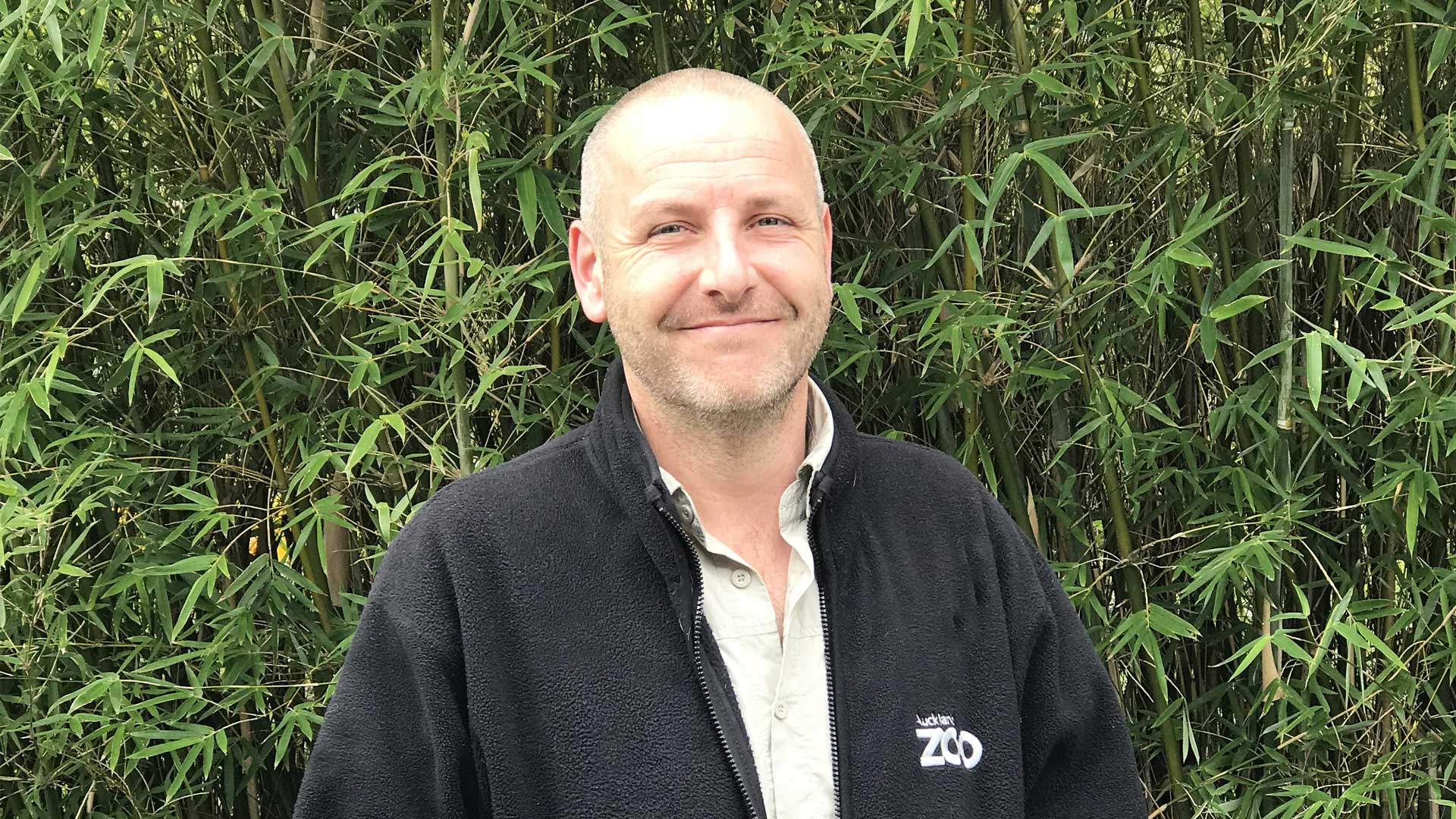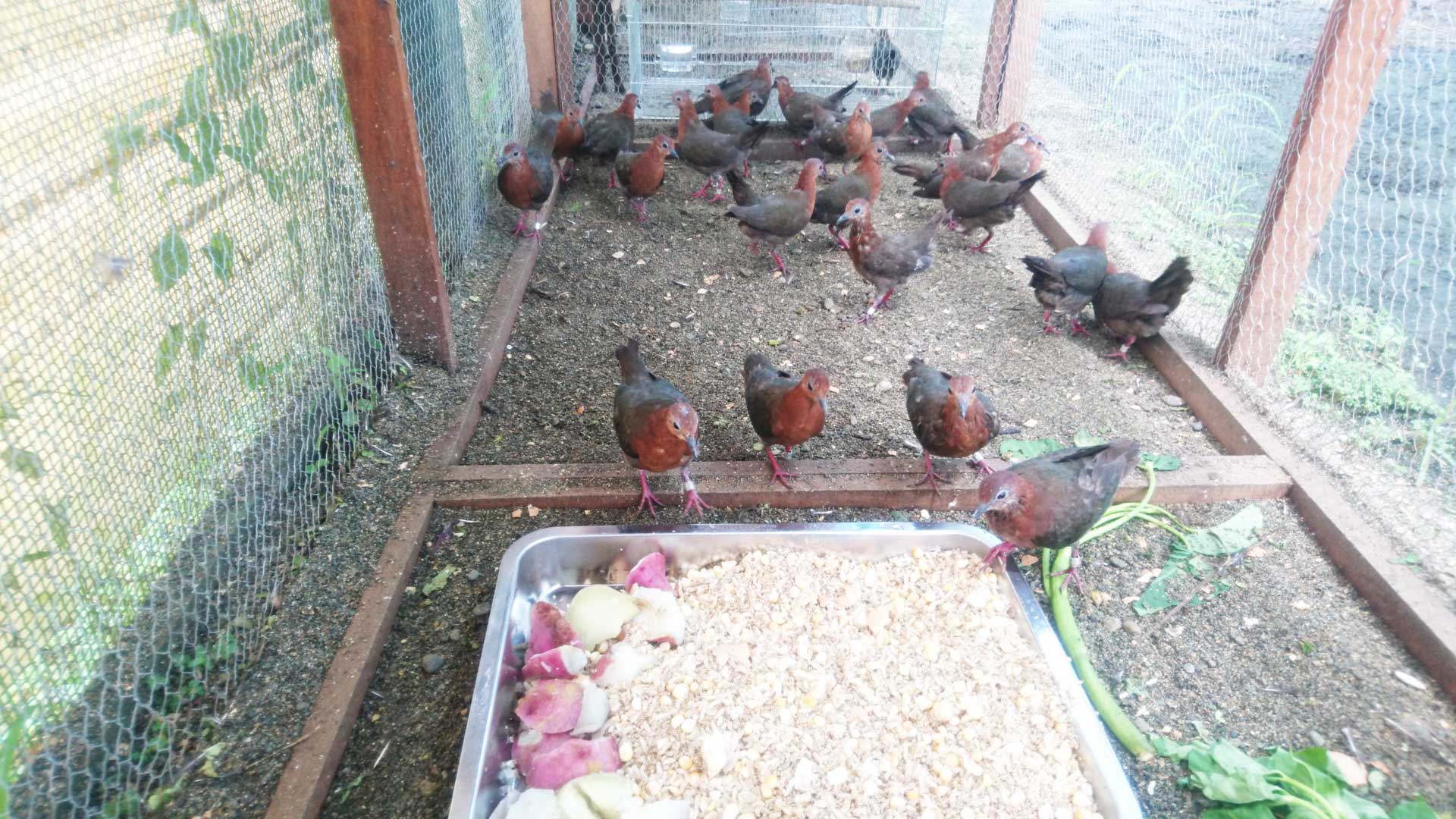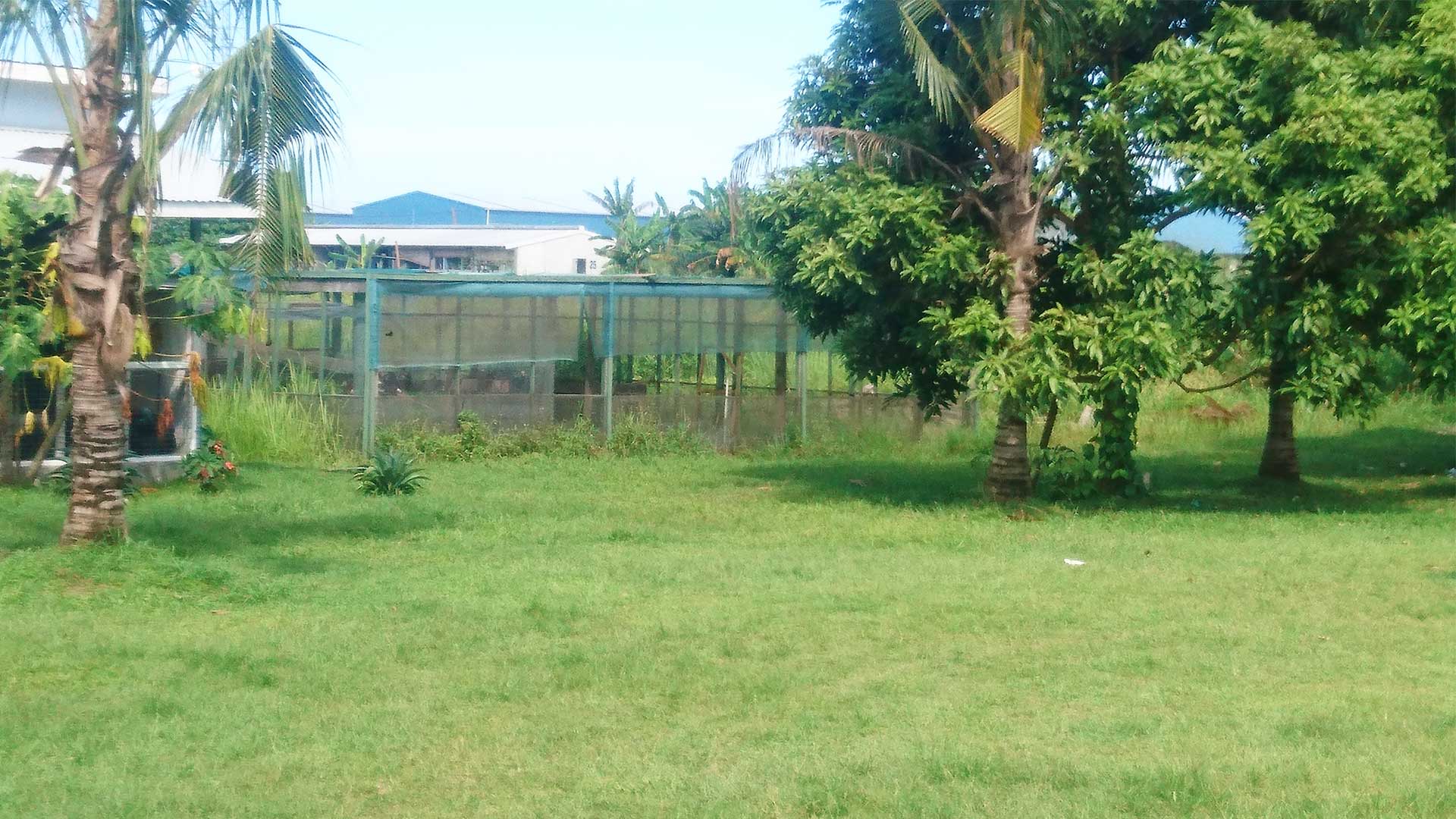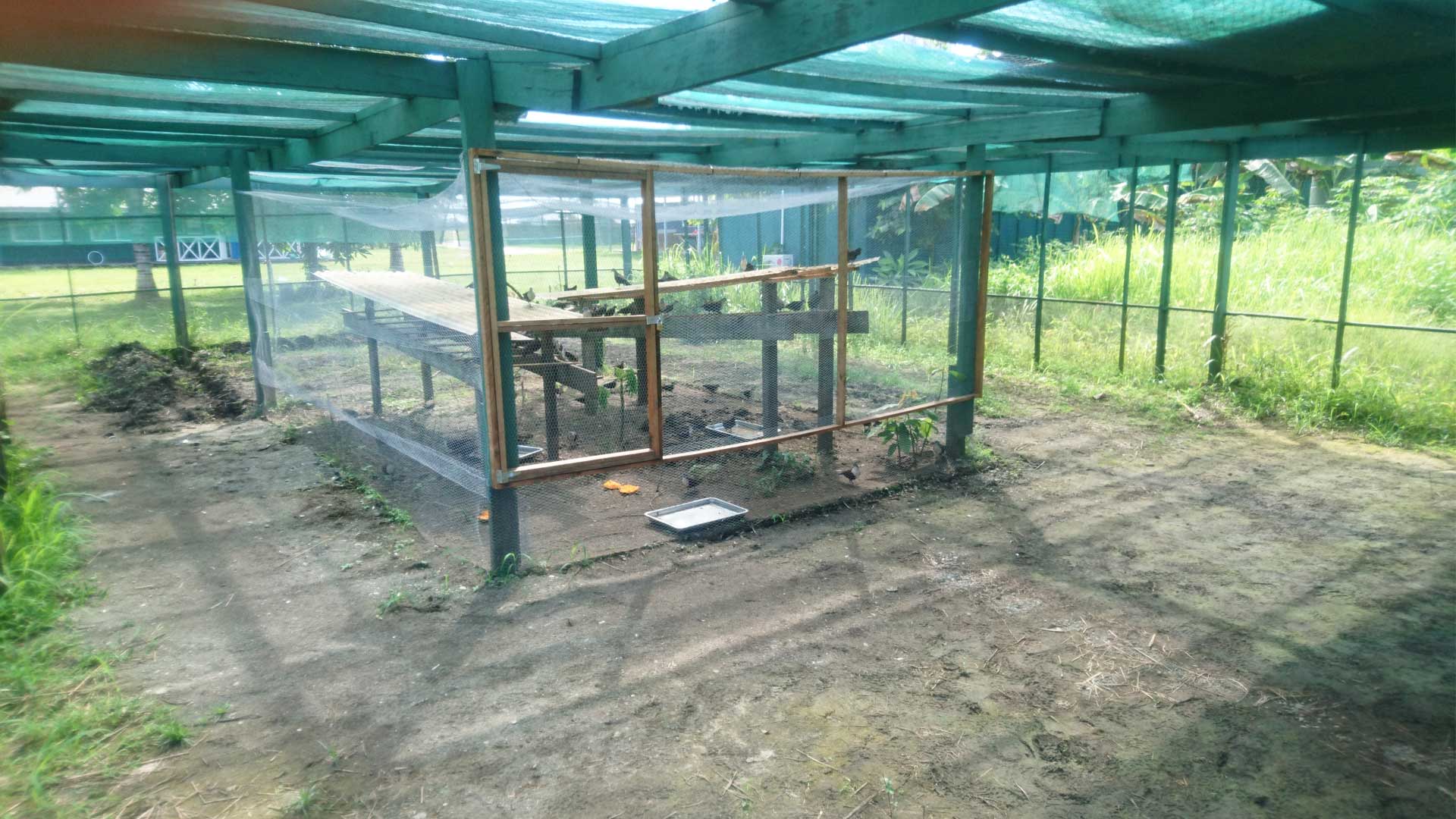Little is known about the species in the wild or how to care for them in captivity – Dean had never even heard of this dove species before, but prior experience with many other dove species meant that he was well placed to figure out how to best care for them. When Dean arrived in the Solomon Islands and assessed the doves, it was quickly evident from the bird’s condition, and the consistency and smell of their droppings that the diet needed a little bit of development. A trip around the markets revealed that popping-corn was hugely popular and readily available. Corn is cheap, easy to store, lasts a long time, and is great to soak and mix with other foods to encourage the doves onto a softer, more appropriate diet. With the addition of some poultry pellets and a reduction in fruit, their poos soon started looking like a bird poo should!
Dean’s trip was just a few weeks long, but he worked alongside and helped train a local bird enthusiast to care for the doves in the future, until a long-term conservation and breeding programme is planned and initiated.
Since the eruption, conservation groups have made their way back to Tinakula and were both surprised and elated to see that the Santa Cruz ground dove had survived. However, with just a handful of sightings it will be a long road to recovery for this tiny, fragile population. Until then, the 110 birds Dean helped establish in captivity will likely become an invaluable breeding programme to guarantee the species survival and perhaps provide offspring for future reintroductions to parts of the dove’s former range where it has been lost. There is therefore, still great hope for this ‘almost extinct’ little dove.
Auckland Zoo is a not-for-profit conservation organisation, and exists to build a brighter future for wildlife and wild places, and to inspire people to make a difference for future generations.


